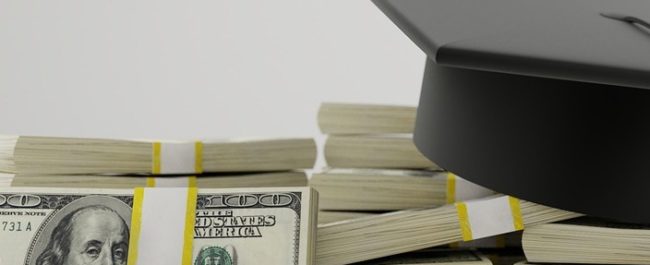Can Bankruptcy Discharge Student Loans?
According to Make Lemonade, a free personal finance website, Americans collectively owe more than $1.5 trillion dollars in student loans – a HUGE amount. One of the most common questions asked about these common loans is what happens if the applicant declares bankruptcy?
Can You File For Bankruptcy For Student Loans?
The easy answer to this question is, yes, you can discharge your student loans, however, the process isn’t as easy as it is for other types of loans.
In order to successfully discharge part or all of a student loan, you’ll need to prove to a judge that the loan causes an “undue hardship”.
Proving A Student Loan Causes Undue Hardship
There are steps that need to be taken in order to successfully prove that a student loan is an undue hardship. These steps include:
Working Through Other Options
A judge needs to see that you attempted to manage the loans through other programs. For example, if you have a federal loan, going on an income-based repayment plan may help to lower payments. Another option is to contact the lender and discuss the possibility of a smaller monthly payment.
Depending on your career, Public Loan Forgiveness may also be an option.
File For Bankruptcy
File for Chapter 7 or Chapter 13 Bankruptcy depending on which is best for you.
Chapter 7 bankruptcy is when your assets are liquidized so that creditors can be paid off. All assets, except for a primary residence, one vehicle, and personal items will go.
Chapter 13 bankruptcy is essentially a repayment plan. Typically, this option is better for those who have fallen behind on their bills because of a short term financial issue. Repayment plans are 60 months or less and the applicant is able to retain their assets. The most common reason for filing for Chapter 13 bankruptcy is a medical issue.
Begin The “Adversary Proceedings”
What are adversary proceedings? This is a type of lawsuit that is related to the bankruptcy. You begin these proceedings by submitting an outline that addresses the ways through which the loan causes undue hardship.
Why Do I Need To Work With A Lawyer To Get My Student Loans Discharged?
Although the U.S. Bankruptcy Code indicates that someone seeking to discharge their student loans must show that the loan causes an undue hardship, it does NOT define what that means. So the outcome will be based on how the assigned judge decides to interpret this.
Typically, a court uses what is called the “Brunner Test” to determine if a student loan should be discharged. In order to pass this test, you must meet the following:
- The amount that must be paid each month prevents you from obtaining a minimum standard of living, based on your current income and other expenses.
- Your life circumstances make it likely that you will be unable to pay the loan in the future as well.
- You have attempted to work with the loan companies to reduce your payments and have done your best to make the repayments work.
An attorney can help you meet these requirements and can also assist you with preparing to appear before the judge.


